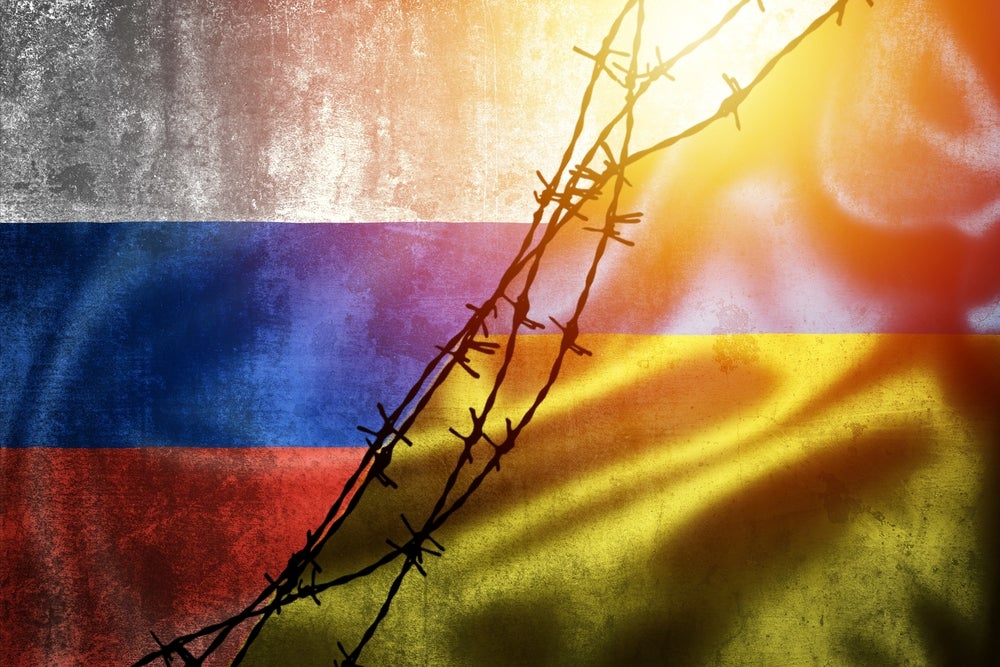
As Russian forces encroach on Ukraine, and its capital Kyiv, many are in the dark about what will happen next. PBI asks the experts on what is likely to happen to private banking in Ukraine in the near future. Will there be a market to come back to?
Private banking in Ukraine: uncertainty continues
Peter McLean, director of the Investment Strategy and Research team of Stonehage Fleming Investment Management, says: “The market has been on the back foot in 2022 so far, with the S&P 500 suffering a decline of c. 10% at the time of writing. The expectation of persistent inflation and a steeper interest rate hiking cycle has motivated investors to rotate capital away from stocks priced with a high valuation premium, such as US technology, into corners of the market that are typically more economically sensitive. Energy, financials and commodity-linked stocks have fared much better so far this year.
“The developments between Russia and Ukraine have added to investor uncertainties and weighed on sentiment in recent weeks, exacerbating these established market trends. As ever, it is impossible to anticipate the next phase of this geopolitical event and its ultimate outcome. However, there are some critical observations and implications for us as multi-asset investors. Importantly, whilst further short term volatility would not surprise us as the market reacts to these developments, historical comparisons offer a valuable insight for long term investors.
“Provided that the broader economic impact is limited, volatility triggered by geopolitical events is typically short lived. With the consumer-led recovery re-accelerating in most advanced economies and trade links with Russia relatively small, it is unlikely that an economic derailment will follow. This is perhaps why we have not seen a more convincing ‘flight to safety’ in the markets as the situation has intensified in late February – both the US dollar and government bonds attracted only modest investor attention as Russia’s initial invasion unfolded. However, existing risks to the market cycle could be exacerbated by prolonged conflict in Ukraine.
“Critically, Russia is a major supplier of natural gas to Europe, and disrupted energy flow could push prices higher, feeding inflationary pressures that have been building for months. We are already seeing this risk being reflected by market participants, with the oil price surging above $100 per barrel. Whilst this may be a temporary development, it is likely to drive inflation expectations higher, putting further pressure on equity and bond markets.
“Our strategy remains constructive on the outlook for core risk assets, namely equities and credit markets, focusing on the positive developments in the broader economy. We remain vigilant to geopolitical developments, and ensure appropriate balance across equity styles, ample cash balances, with limited allocation to traditional government bonds.
How well do you really know your competitors?
Access the most comprehensive Company Profiles on the market, powered by GlobalData. Save hours of research. Gain competitive edge.

Thank you!
Your download email will arrive shortly
Not ready to buy yet? Download a free sample
We are confident about the unique quality of our Company Profiles. However, we want you to make the most beneficial decision for your business, so we offer a free sample that you can download by submitting the below form
By GlobalData“Geographically, our equity portfolio tilts towards the UK relative to Europe, where we benefit from a higher allocation to low valuation sectors that have held up well so far this year. We also have meaningful capital allocated to the US smaller companies market, which retains strong growth prospects. Alternative assets, including long/short managers, catastrophe bonds and physical gold, add crucial risk diversification.”
What about the markets?
The private banking sector in Ukraine is one thing, but what about the surrounding markets in general?
Daniel Casali, chief investment strategist at Tilney Smith & Williamson, comments: “With Russia responsible for around 11% of global oil exports, the invasion could present a risk to supply, which is already tight following low levels of investment. However, we expect the economic impact to be lower compared to previous oil shocks (e.g. 1970s). The Eurozone is most exposed given its closer economic linkages and dependency on Russia for natural gas, but we do not expect the invasion to trigger a deep recession.
“If the price of oil stays close to $100 then its direct contribution to inflation will be disinflationary over Q1-Q3 2022. However, if the price increases to $130 inflation will increase over the coming quarters.
“Historically, the market’s response to geopolitical events tends to be short-lived. Our analysis finds that, on average, losses resulting from geopolitical events are erased within one month.
“Ultimately, the Russia-Ukraine situation is another problem for stock markets to digest at a time when they were already starting to look vulnerable from multi-decade high inflation and the removal of accommodative monetary policy. But we will continue to monitor the situation carefully and will adjust our positioning accordingly should we see a shift in the fundamental outlook. For now, considering the balance of probabilities as long-term investors, we favour maintaining current equity exposure.”
Not as bad as it seems?
Others think the conflict in Ukraine is not going to derail recovery in global banking.
Rupert Thompson, Chief Investment Officer at Kingswood, says: “Many client portfolios have registered reasonable falls since the start of the year as a result of losses on both fixed income and equity holdings. These have in large part been caused by the surge in inflation which has led central banks, particularly in the UK and US, to accelerate their monetary tightening plans substantially. However, the crisis in the Ukraine has recently added to the downward pressure on equities.
“Some market turbulence is the norm when central banks start raising rates and is not unexpected. Importantly, equities tend to resume their upward trend within a few months and we expect this also to be the case this time. Even with the increases planned, interest rates will remain low by historical standards and economic growth should remain quite strong over the coming year.
“As for the Ukraine, markets have reacted calmly to the latest escalation, which saw Russia lay claim to parts of Ukraine, triggering a range of Western sanctions including German suspension of a major new gas pipeline. UK and European equities ended yesterday little changed and are actually up 0.5% or so today. US equities suffered a bit more, falling 1% yesterday but indications are for some recovery today. The oil price, meanwhile, rose only a comparatively modest $2 or so yesterday to $97/bbl.
“Global equities are now off around 8% from their early January high and slightly below their late January low. Near term, the crisis could clearly worsen further if Russia, as is quite possible or even probable, extends its move further into the Ukraine and Western sanctions are intensified. This would very likely lead to some further decline in equities and possibly a surge in oil prices well above $100/bbl. Higher oil prices would exacerbate the sharp rise in inflation, increase worries of a wage-price spiral and mean central banks would very likely stick to their tightening plans even if equity markets fell back significantly further.
“Even so, the experience of most geo-political crises in the past is that equity market falls tend to be relatively short-lived, with markets regaining their losses within a matter of months. Even in the Gulf War of 1990, where markets were still down 11% after three months, they had regained all these losses within six months.
“The market falls are also expected to be relatively short-lived this time. At the end of the day, the Ukraine crisis and rise in rates should not derail the global economic recovery. We still believe equities have upside on a 6-12 month view and will outperform cash and bonds. So, our plan is very much to ride out the current volatility in equities and take advantage of any opportunities which crop up.”
Private banking in Ukraine is sure to take a hit with the markets taking the resulting shockwaves. While global banking may be set to recover nonetheless, Ukraine is in a different situation altogether.







